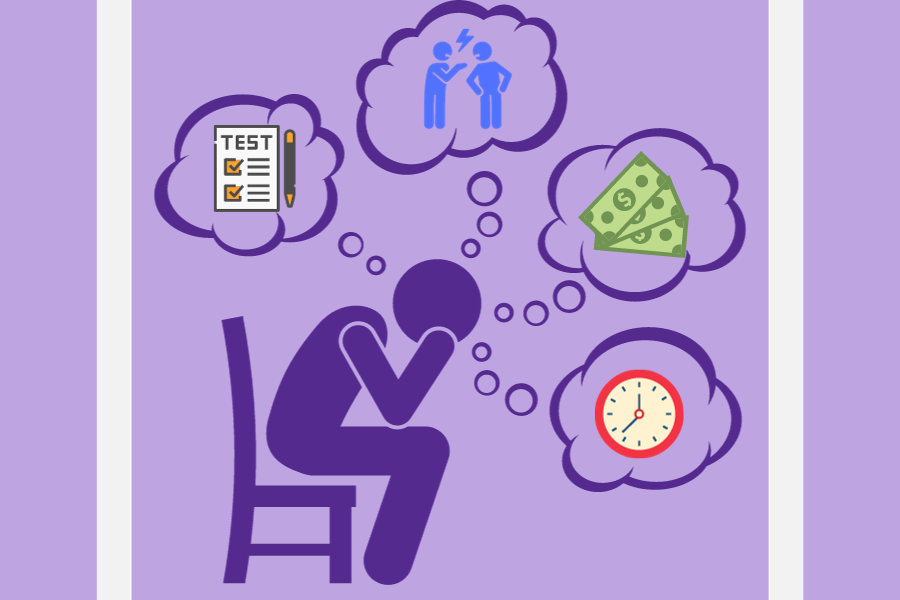Due to factors such as academic pressure and relationship issues, students have a lot to deal with when it comes to stress.
According to “The Impact of Stress on the Structure of the Adolescent Brain,” the emotional and cognitive centers of children’s brains change as they grow up. But, too much stress can cause permanent damage to the brain. Using tools to cope with stress is a way to avoid this.
“First, taking care of your basic needs is helpful,” Clinical Trainee and F-14 Counselor Georgia Harrell said. “Make sure you’re getting enough sleep and enough to eat. If you’re still feeling really stressed, I encourage everyone to go to therapy, but I’m a little biased since that’s my job.”
Harrell thinks taking a break and doing something enjoyable is a way to distance herself from a taxing routine.
“I’m a grad school student, so I’m also having school stress like everyone else,” Harrell said. “I think for me, what helps is scheduling time for myself. In addition to scheduling what I have to do for school, [I am also] taking time to [schedule] hours for me. I do what’s going to make me feel energized, whether that be hanging out with friends or a walk or something like that.”
Pinpointing where the stress is coming from can help with deciding how to cope with it.
“[For] academic stress, look at organizational tactics [and] figure out what about it is stressful for you,” Harrell said. “If it’s because you feel like you’re behind, maybe work on organizing your time. [For] peer challenges, work on communication skills with your friends and remind yourself it’s okay to have disagreements.”
According to “Examination of Stress and Anxiety: A Study of College Students,” some stress is beneficial. It can push students to focus and work harder. It’s important to be aware when stress becomes unhealthy.
“One thing I’ll say is sometimes people can have really strong reactions when they notice they’re getting stressed because they [think it] isn’t normal and [they] shouldn’t be so stressed,” Harrell said. “I want to normalize the experience of being stressed and that it’s okay [when it’s] a little bit. When it feels like it’s getting unmanageable, that’s when you should start worrying. A normal amount of stress is healthy, but be mindful when it starts to impact you to a degree that you don’t feel functional.”




















